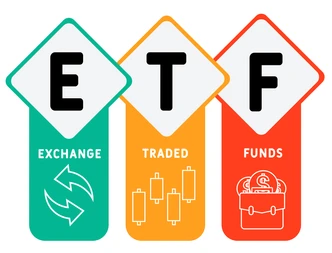What is ETF?
Exchange Traded Fund (ETF)
Auto insurance buyers are going to the internet for estimates, to compare other firms’ offers, and to receive answers to their questions.
The ETF often uses an arbitrage mechanism to keep its trading price close to its net asset value, though there may occasionally be deviations. The majority of exchange-traded funds (ETFs) are index funds, holding the same securities in the same ratios as an established stock market index or bond market index. The S&P 500 Index, the broad market index, the NASDAQ-100 index, the price of gold, the “growth” stocks in the Russell 1000 Index, or the index of the biggest technological companies are the benchmarks replicated by the most well-liked ETFs in the United States. The list of equities that each actively managed ETF owns, together with their weightings, are typically provided daily on the issuer’s website, with the exception of non-transparent actively managed ETFs. Although specialist ETFs can have annual fees considerably in excess of 1 percent of the amount invested, the largest ETFs have annual costs of 0.03 percent of the invested amount or even less. The dividends earned from the underlying holdings or the proceeds from asset sales are used to pay these fees to the ETF issuer.

Each shareholder owns a portion of an ETF, which is divided into shares. The specifics of the structure (such as a corporation or trust) will differ depending on the nation, and even within a single nation, there may be a variety of alternative arrangements. The assets of the fund are indirectly owned by the shareholders, who normally receive yearly reports. The fund’s shareholders are entitled to a portion of the earnings, such as interest or dividends, as well as any remaining value in the event of a liquidation.
Because of their cheap expenses, tax efficiency, and tradability, ETFs might be a good investment.
$9 trillion had been invested in ETFs as of August 2021, with $6.6 trillion of that amount in the United States.
The largest ETF issuers in the US are BlackRock iShares, which holds a market share of 35%, The Vanguard Group, which holds a market share of 28%, State Street Global Advisors, which holds a market share of 14%, Invesco, which holds a market share of 5%, and Charles Schwab Corporation, which holds a market share of 4%.
Despite being funds and being traded on an exchange, closed-end funds are not regarded as ETFs. Exchange-traded notes are a type of financial instrument that is not an ETF.

